The pike characins (Acestrorhynchus) belong to the obligatory predatory fish among the tetras. They only eat carnivorous food, preferably fish. There are currently 14 recognized species. The smallest species are barely 10 cm long, the largest 35-40 cm.
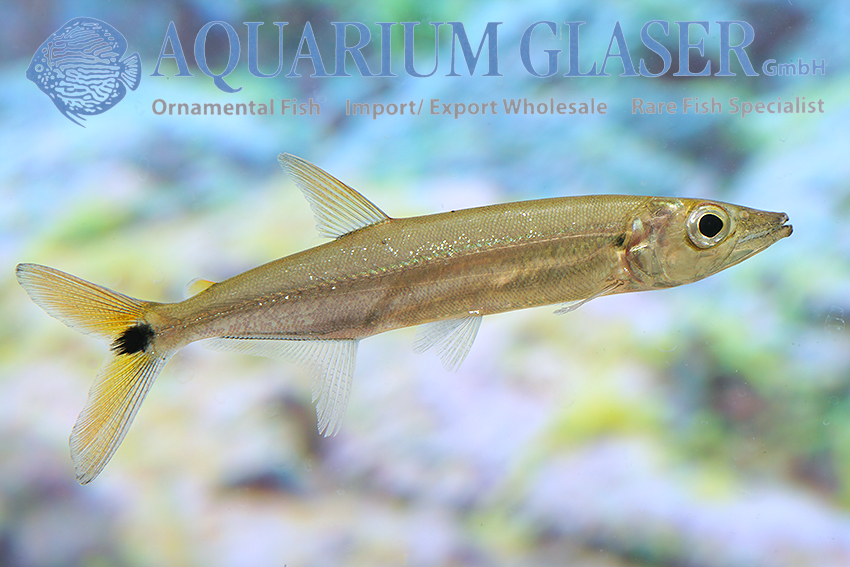
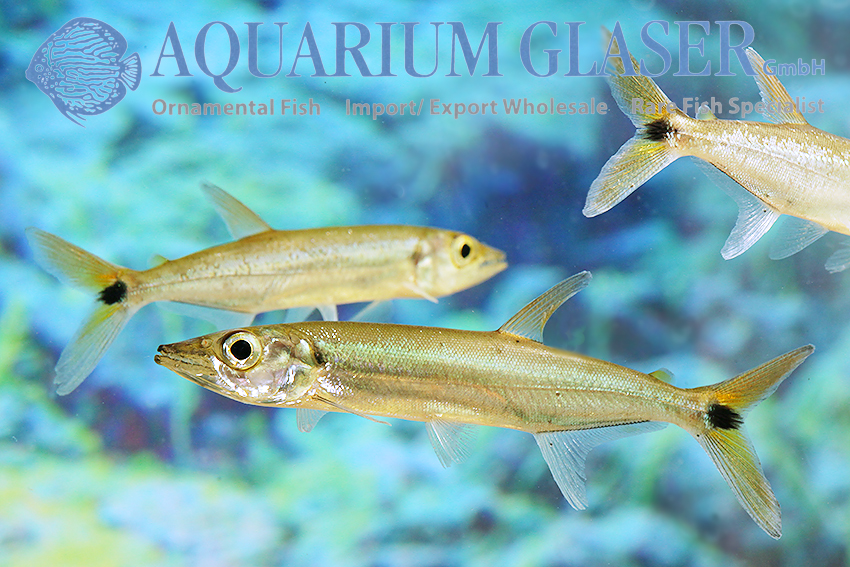
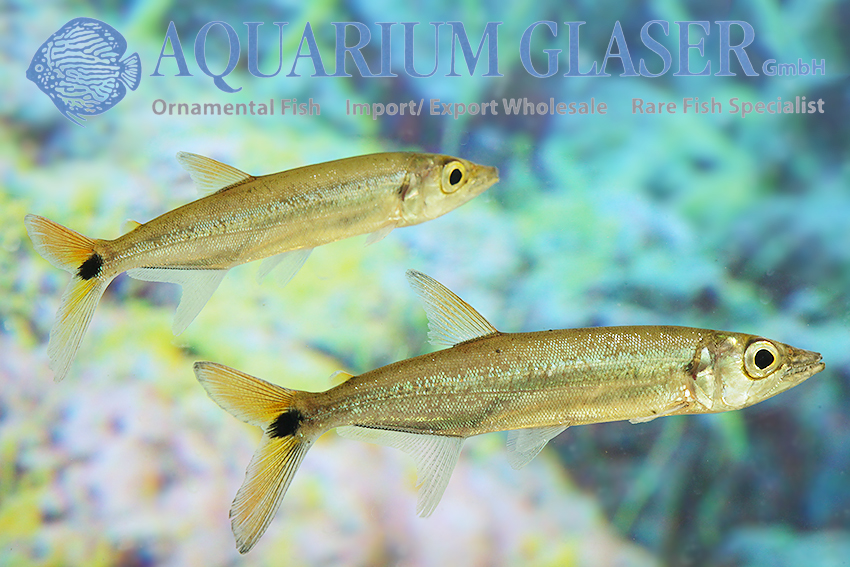
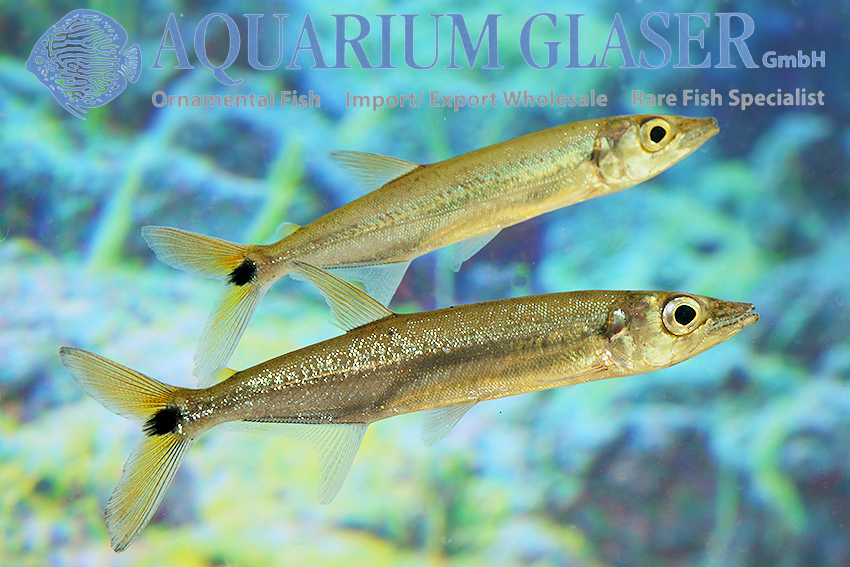
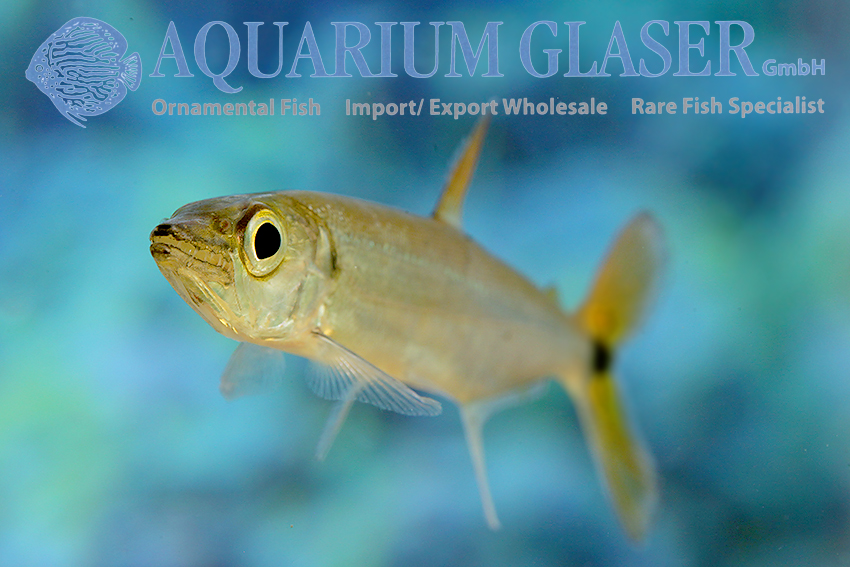
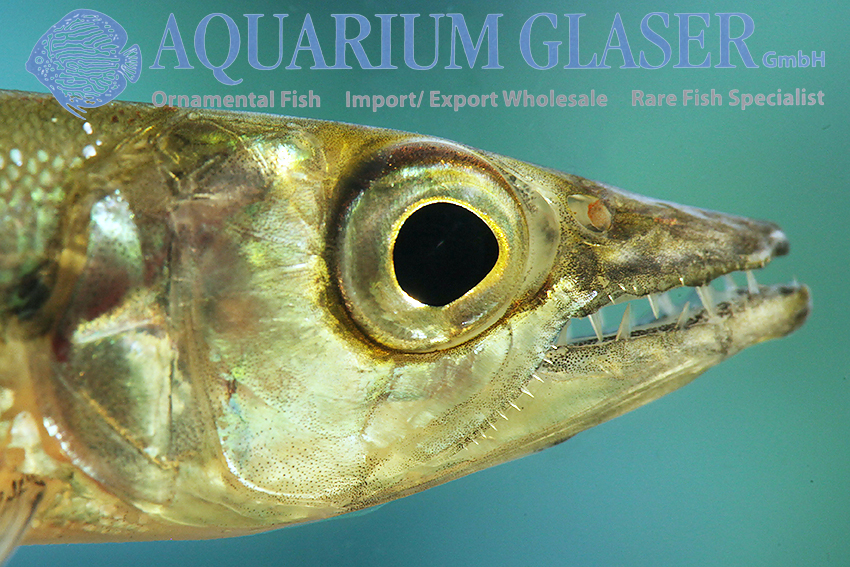
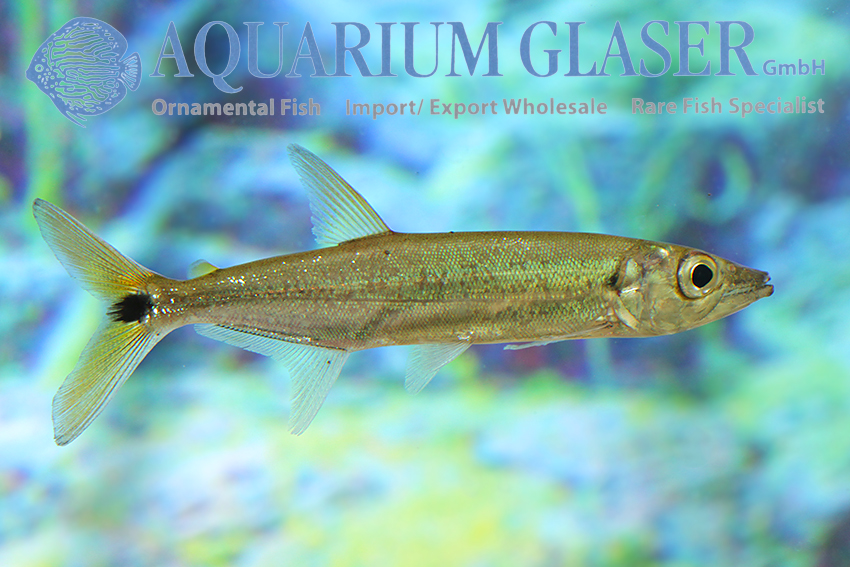
With an expected final size of 20-30 cm, A. microlepis is one of the medium-sized species. In addition to the particularly small scales (to which the species name refers), there is an inconspicuous but reliable identification feature for this species: a small dark spot behind the gill cover. This spot is missing in other, similar-looking species.
We received some specimens of this species from Peru measuring 6-9 cm. After a few days of acclimatization, they developed very pretty, orange fins, which we had never really noticed in this species before. The subsequent literature check revealed that only a few years ago (2003) the variability of A. microlepis in the very large distribution area of the species – which includes practically the entire Amazon and Orinoco basins as well as the Guyana states – was investigated. No new species could be delimited. Thus, our animals are at least formally only a local variant of A. microlepis.
Acestrorhynchus microlepis (and all other A. species) should be kept in aquaria that are as large as possible, as they are somewhat skittish and can easily injure their snouts in cramped conditions. Acclimatized specimens usually eat frozen fish, but during the acclimatization phase you usually need healthy (!) live food fish. A. microlepis are peaceful with each other and with other species that are not suitable as food. The water values (pH and hardness) are insignificant, the temperature should be in the range 22-28°C. Good planting, light that is not too bright and a calm, low-stress environment are the key to keeping Acestrorhynchus successfully for many years. We know of no breeding reports, and breeding has probably never been attempted. It can be assumed that these animals are free spawners without further brood care.
For our customers: the animals have code 202203 on our stocklist. Please note that we only supply the wholesale trade.
Text & photos: Frank Schäfer




